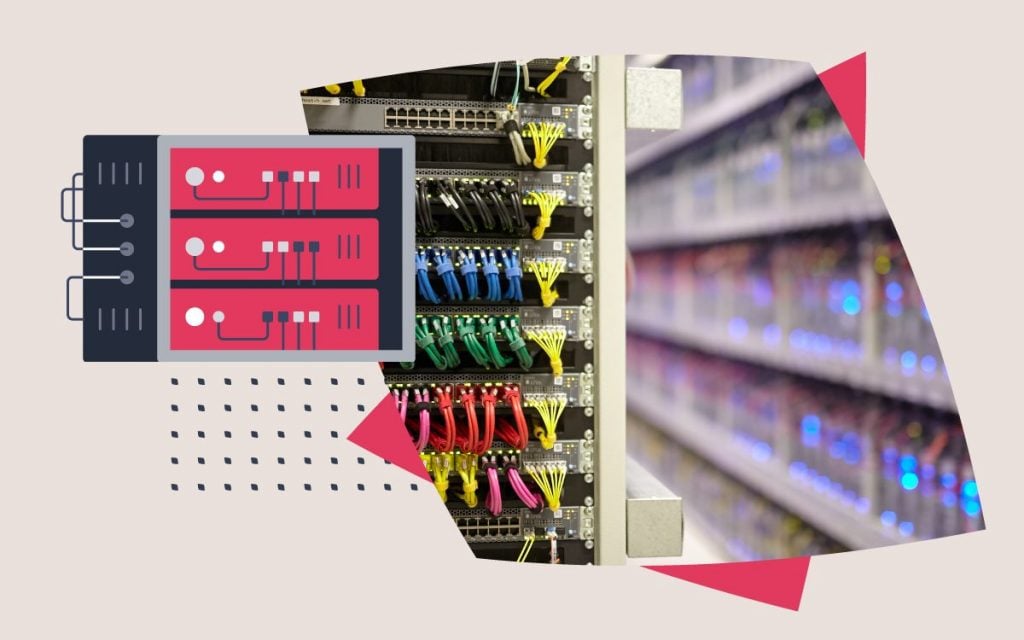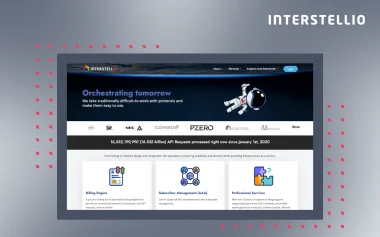As your business evolves, your hosting needs may also change. It’s important to choose a hosting solution that works best for your budget and technical requirements.
We offer products that support both startups and growing enterprises: xneelo Cloud and Self-Managed Dedicated Servers.
In this article, we compare the differences to help you decide which product is best suited for your business.
Choosing a solution
Both xneelo’s Cloud and Self-Managed Dedicated Servers offer robust hosting solutions. The choice that’s right for you depends on your specific workload, technical requirements, and the level of flexibility or control you require.
At a glance:
- High-performance virtual infrastructure with flexible pay-as-you-go pricing
- Deploy your own resources rapidly, and scale whenever you need
- Aimed at technical users with experience in server management
- Suits dynamic and evolving environments
Self-Managed Dedicated Servers
- Suits dedicated, self-managed hosting environments
- High-performance dedicated bare-metal servers at a fixed monthly price
- Offers customisable hardware, software and networking options with full administrator/root access
- Aimed at technical users with experience in server management
What is xneelo Cloud?
Xneelo Cloud lets you build and manage your own cloud environments using virtual infrastructure, with flexible pay-as-you-go pricing. You can create cloud resources on demand, including instances (virtual servers), block storage volumes, networks and routers.
All of this is available via a user-friendly dashboard, with resources ready to use within minutes.
Xneelo Cloud runs on a shared cloud platform in our secure data centre. Virtual resources are deployed automatically to high-performance hardware, set up for redundancy.
Looking for more information? We’ve created an easy-to-understand explanation on cloud hosting and what to consider when choosing the right solution for your business.
Visit our website to get started with xneelo Cloud
What are Self-Managed Dedicated Servers?
Dedicated Servers are physical servers leased to you at a fixed monthly cost. You can customise the hardware, software and network resources to match your specific requirements and performance needs.
Once the server is provisioned, you have full administrator/root access to manage the environment yourself.
Dedicated Servers run on enterprise-grade hardware in our secure, fully redundant data centre. Each server is exclusively allocated to you, with dedicated compute and storage resources.
Looking for more information? We’ve created an easy-to-understand explanation of dedicated servers, how they work, the costs involved and what to consider.
Visit our website to get started with Self-Managed Dedicated Servers
Use cases
Many workloads will run just as well on either xneelo Cloud or a Self-Managed Dedicated Server. There’s no single “right” choice; it all depends on what you’re hosting.
Understanding your use case is key to choosing the right solution.
Xneelo Cloud is well-suited for:
- Fluctuating or unpredictable workloads
- Startups, testing environments, or businesses with seasonal fluctuations
- Distributed applications, containerised apps, microservices, and cloud-native architectures
- Rapid deployment and scaling environments quickly
- Flexible solutions and general-purpose hosting
Self-Managed Dedicated Servers are well-suited for:
- Predictable, long-running workloads
- Businesses with stable performance requirements
- Hardware isolation and compliance needs, ideal for security-sensitive or performance-critical projects
- Self-managed environments where a high degree of customisation and control is required.
Pricing
Pricing structures for xneelo Cloud and Self-Managed Dedicated Servers are quite different. Here’s how they compare:
xneelo Cloud: pay-as-you-go pricing
You only pay for the cloud resources you’ve created and for the duration they exist:
- Cloud resources are charged per hour
- This offers flexible pricing with no long-term commitments
- Your monthly cloud costs change based on usage, so your monthly bill may vary
For more information, please view the xneelo Cloud pricing.
Self-Managed Dedicated Servers: fixed monthly price
You pay a fixed monthly fee based on the server and customisations you choose:
- Pricing depends on your hardware and software customisations
- You pay for the full month, regardless of usage
- With a fixed pricing model, your cost remain predictable
For more information, please view our Self-Managed Dedicated Server pricing.
Scalability
Scalability is all about how easily you can grow and scale your hosting setup as your business needs change. Xneelo Cloud and Self-Managed Dedicated Servers offer different approaches to scaling.
Xneelo Cloud:
- Create, resize, or delete cloud resources, on demand
- Resources are provisioned in minutes, with no downtime
- Allows for rapid scalability of your virtual infrastructure
Dedicated Servers:
- Offers customisable hardware and software
- You can order upgrades or add-ons on request
- Some lead time and downtime is required for hardware installation
Responsibility
Both xneelo Cloud and Dedicated Servers are self-managed products. They are designed for technical users who are comfortable managing their own server environments. As a result, xneelo’s support is limited to infrastructure-level issues. Find out more about support for xneelo Cloud.
The table below outlines which areas are managed by xneelo, and which are your responsibility as our customer:
| Applications | Both products: You are responsible for your websites, content and application data Xneelo has no responsibility over the software you run | |
| Backups | Both products: You are responsible for implementing and managing backups Xneelo does not create or store backups for you | |
| Provisioning | Xneelo Cloud: You provision your own resources via the cloud dashboard Dedicated Servers: Xneelo provisions your physical server and add-ons after order confirmation | |
| Administration | Xneelo Cloud: You are responsible for managing the operating system, updates, patching, and installing software You choose or upload images at instance creation Dedicated Servers: You are responsible for managing the operating system, updates, patching, and installing software Xneelo installs your selected operating system during setup | |
| Security | Both products: You are responsible for software-level security: firewall rules, access control, and data encryption Xneelo manages physical, platform, and network security | |
| Monitoring | Xneelo Cloud: You monitor your virtual servers, services, and logs Xneelo monitors platform-level availability and infrastructure performance Dedicated Servers: You monitor your server, services, and logs Xneelo monitors physical hardware health | |
| Network | Xneelo Cloud: You are responsible for configuring and managing private networks, including network topology, subnets, and routing between your virtual resources Xneelo manages the underlying public network infrastructure performance and availability Dedicated Servers: You have no responsibility over the physical network infrastructure Xneelo manages the network performance and availability | |
| Hardware | Both products: You have no responsibility over the physical hardware Xneelo manages the underlying physical infrastructure | |
| Data Centre | Both products: Xneelo manages the security and power redundancy in our local Data Centre | |
Still not sure?
Here’s a quick way to help you decide:
- Need quick deployment and scalability? Comfortable managing your own environment? Want flexible pay-as-you-go pricing? Choose xneelo Cloud.
- Want complete control and customisation? Have the technical skills to manage your own server? Want predictable monthly pricing? Choose a Self-Managed Dedicated Server.
If you have any questions, our team is here to help you make the right choice for your needs.










